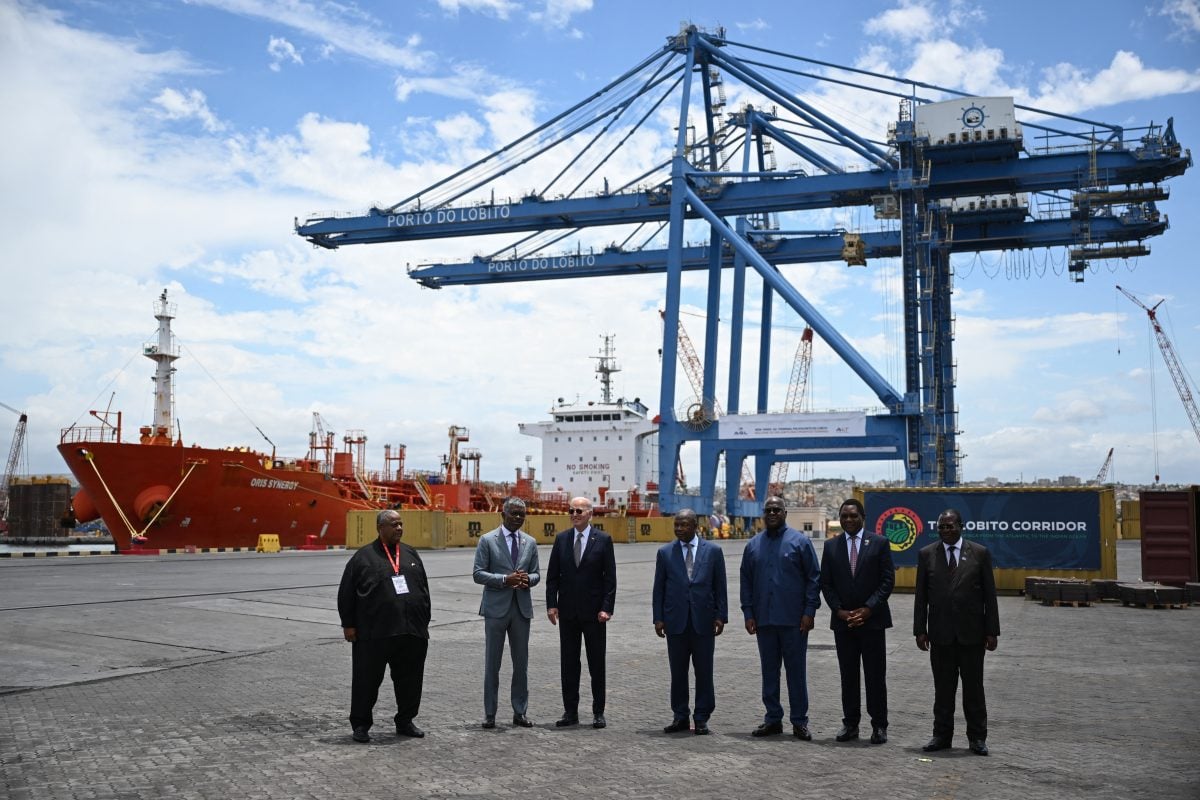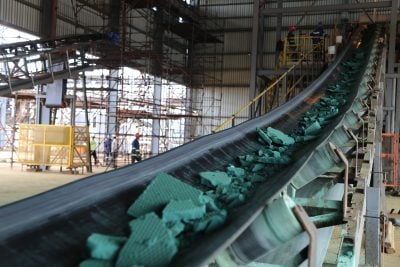Born in Angola, the Lobito Corridor plays a pivotal role in Africa’s economic development. It gives the country a unique chance to become a gateway for international trade by facilitating transportation and boosting investments within the country and its neighbouring regions.
The origins of the Corridor go back to 1899, when construction started on the Benguela Railway, which linked Lobito to the continent’s heart, reaching as far as the Katanga region in the Democratic Republic of the Congo. Completed in 1929, the Benguela Railway was a critical artery for exporting minerals to international markets. However, during Angola’s civil war (1975–2002), large segments of the railway were damaged or abandoned, halting cross-border transit and trade.
After the war, the Angolan government began the rehabilitation of the Benguela Railway, which is a cornerstone of the project. This involves upgrading the railway tracks, modernising signalling systems and improving rolling stock to ensure efficient and reliable transportation of goods and passengers.
But the project is more ambitious and far reaching.
The Port of Lobito is being expanded and modernised to handle increased cargo volumes. This includes the construction of new terminals, deepening of the harbour and installation of state-of-the-art cargo handling equipment.
In addition to the railway, the project includes upgrading road networks that connect to the corridor. This ensures seamless multimodal transportation options for goods and passengers.
Streamlining customs procedures and improving border management are essential to facilitate smooth cross-border trade. The project includes initiatives to harmonise customs regulations and enhance cooperation between Angola, DRC and Zambia.
With the implementation of these critical infrastructures that are essential for the movement of resources, the Lobito Corridor can significantly enhance logistics efficiency and speed, reducing business costs and promoting economic growth.
Challenges to overcome
Today, the Lobito Corridor is partially operational, with the Angolan side functional and modernised and with regular freight services between Lobito and the border. But there are still difficult hurdles in several areas that need to be overcome.
Securing adequate funding is no doubt a challenge, as large-scale infrastructure projects require substantial upfront capital, and the regions that the corridor traverses have limited access to international financial markets.
On the infrastructure side, efforts are ongoing to renovate the links into the DRC and Zambia, where the railway is still in poor condition. Upgrading, constructing and maintaining the necessary infrastructure across difficult terrain, outdated networks and different rail equipment is no easy task.
Effective governance is critical for the success of the Lobito Corridor. The project spans multiple countries, each with its own regulatory frameworks, political priorities and administrative capacities. Coordinating policies, regulations and standards across borders is complex and can lead to delays or inconsistencies. Establishing clear, enforceable agreements and oversight mechanisms is essential but often difficult in such a multi-jurisdictional context.
Crucial for the project is also coordination. The wide range of stakeholders, including national governments, regional organisations, private investors and local communities, make it a priority that all interests and timelines of these diverse actors are aligned, which is no small task. Cross-border coordination remains an obstacle, with differences in legal frameworks and operational standards requiring harmonisation.
Despite these issues, pilot shipments of minerals from the DRC have begun reaching Lobito. Angola’s government has also established the Lobito Atlantic Railway (LAR) company to coordinate corridor development and encourage regional collaboration to find ways to diversify its economy by lowering its oil dependence. One project in the pipeline is the first Avocado National Cluster in Huambo Province. It is the result of a strategic investment by the Netherlands that will benefit directly from the transport capacity that the corridor will provide.
But why was the Lobito Corridor chosen? Because it provides a direct and cost-effective route for goods transportation to the Atlantic Ocean through the Lobito port. Compared to other options like Dar es Salaam port or the South African ports, the Lobito Corridor significantly reduces travel distances and costs for mineral exporters, and also reduces significantly the carbon footprint.
A highway for critical minerals
This investment could also represent an important strengthening of Angola’s role on a global scale as a supplier of critical raw materials for the energy transition. It is a given that the production of the minerals needed to produce batteries is still far below demand, a market imbalance that will tend to worsen significantly in the coming years if no new robust exploration projects emerge.
For this reason, reserves of lithium, nickel, copper, cobalt, rare earths and other metals can assume crucial strategic importance in the green energy transition and, in particular, in the move towards electric mobility, since they are essential components for the mass production of batteries.
In short, the Lobito Corridor can play a crucial role at a key moment in history, since it has the potential to transform regional trade dynamics in Central and Southern Africa.
While significant challenges remain, particularly in funding, infrastructure, governance and coordination, the commitment from governments and international partners is essential to continuing to foster the success of this infrastructure. With continued cooperation, the Lobito Corridor will certainly be a hub of opportunities.
Want to continue reading? Subscribe today.
You've read all your free articles for this month! Subscribe now to enjoy full access to our content.
Digital Monthly
£8.00 / month
Receive full unlimited access to our articles, opinions, podcasts and more.
Digital Yearly
£70.00 / year
Our best value offer - save £26 and gain access to all of our digital content for an entire year!

 Sign in with Google
Sign in with Google 



